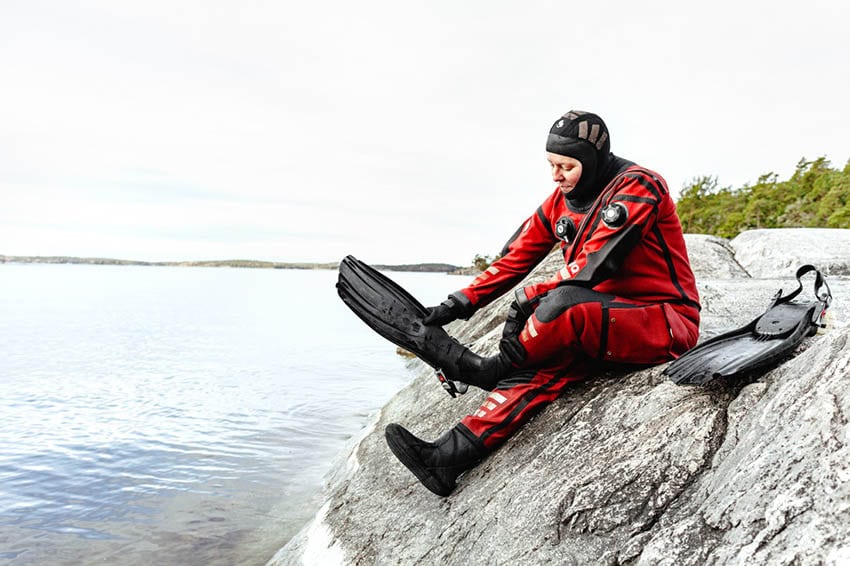As professor of plant cell and molecular biology at Umeå University, Stefan Jansson led a project on genetically modified hybrid aspens. The project began in 2010.
In the spring of 2017, flower buds were discovered on some of the aspens and, in accordance with an agreement with the Swedish Board of Agriculture, these were to be cut down. This was done immediately and, according to the permit, even aspens without flower buds were to be felled.
Convicted of environmental crime
The parties agreed that the latter would take place no later than April that year, but it was not until January 2018 that the trees were cut down.
“The Swedish Board of Agriculture reported this and, after two years, I was called for a police interview. I contacted the university’s lawyer and admitted that I was responsible for the trees not being removed,” says Jansson.
As he has also been head of the department since 2016, he was sentenced to a fine of SEK 24,300 for unauthorised environmental activity. The university could neither assist him with the legal process nor pay for it.

At the time, it was not possible to issue a corporate fine to an authority, so the university could not be prosecuted for the environmental crime. Now, however, the Criminal Code has been amended so that higher education institutions can also receive corporate fines.
Could have been acquitted after amended Criminal Code
However, according to Magnus Clase, who was the prosecutor in the case, assessment must be made on a case-by-case basis. It is therefore not possible to determine whether Stefan Jansson would have been convicted or acquitted based on that change.
“But to state categorically that there is no risk that a head of department can be held accountable would be going too far,” wrote Clase in an email to Universitetsläraren.
The legal protection provided within home insurance was not applicable either, as the incident was related to Stefan Jansson’s work. The trade union could not provide legal support, he says, because the matter did not concern a conflict with the employer.
In addition to having to pay the fine himself, the verdict has other consequences, he says.
“I do not want to be responsible for such tests again,” says Stefan Jansson. “And it could also hinder future research, because a head of department can be held accountable if something inappropriate slips down the drain. That will be a bigger worry.”
Colleagues have been supportive
Jansson says that he still feels frustrated and that he is caught in the middle. Several colleagues have been supportive and have made contributions to help him pay the fine.
He has also had meetings with heads of department at other higher education institutions. Most have expressed surprise that the employer cannot provide either financial or legal assistance, he says.
“At first I was so angry with Umeå University,” says Jansson, “but it turns out that other universities would have reasoned in the same way. So this is really a systemic problem.”
Even though his frustration with his employer has subsided, he still thinks that Umeå University could have done more. “I understand the argument that you shouldn’t use tax money for this kind of thing,” he says, “but in many ways this constitutes a precedent that is important for how a university should and can act in the future. With a little good will, they could at least have investigated what they could have done.”
“Responsibilities are delegated”
Mikael Elofsson, dean of the Faculty of Technology and Science at Umeå University, writes in an email to Universitetsläraren that he regrets that an employee has been personally liable for damages and emphasises that the university has responsibility for its activities.
“In order for this to happen in accordance with laws and regulations, tasks and responsibilities are delegated to those within the organisation who have the resources, the knowledge and the authority to carry out the tasks and fulfil the relevant conditions. In most cases concerning research and any associated permits, that is the project manager or the head of department,” writes Elofsson.

He also points out in his email that it is important after the verdict against Stefan Jansson to find out “where the system broke down”.
“Obviously the aim is for the university to be able to continue to carry out research projects that require permits and that project managers and heads of department feel comfortable and secure in their respective roles.”
The SULF Association at Umeå University has submitted a motion to the SULF Congress stating that it wants the union to work centrally to urge higher education institutions to take out liability insurance for people in management positions in order to avoid similar situations happening again.
Mikael Elofsson does not see this as an alternative for Umeå University. “It would not be in tune with the legislator’s purpose, which is that clearly defined personal responsibility is more likely to result in laws and conditions for permits being followed,” he writes.

















